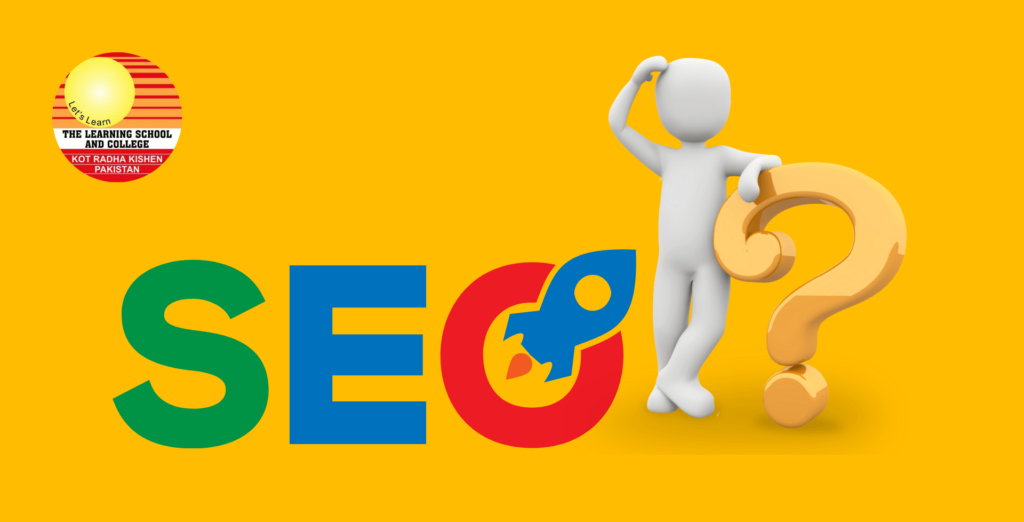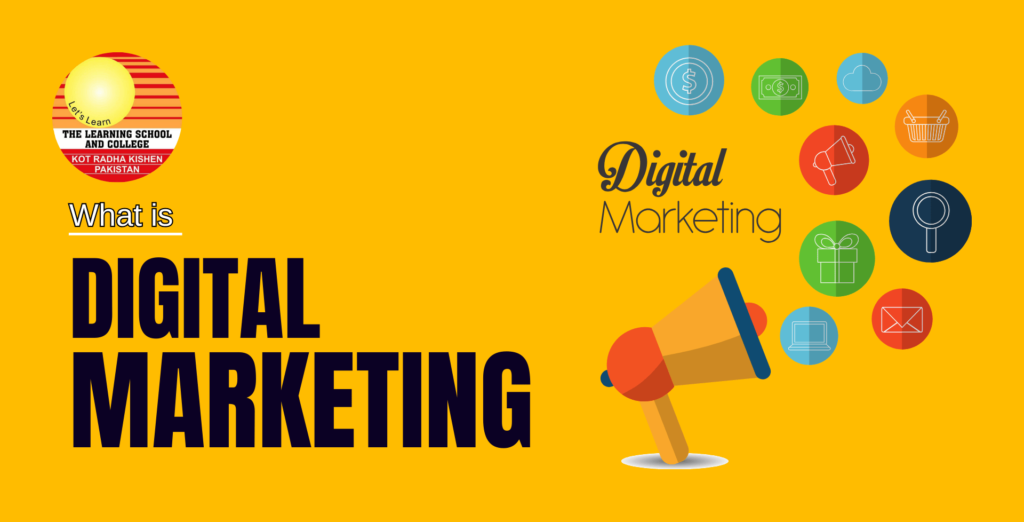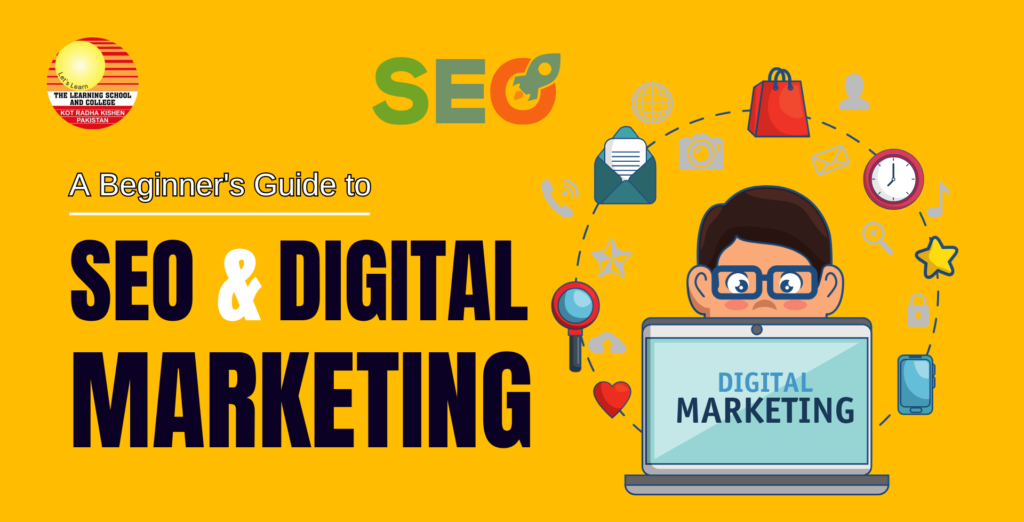In today’s rapidly evolving business landscape, SEO (Search Engine Optimization) and digital marketing have become indispensable tools for businesses aiming to establish a robust online presence. Over the years, digital marketing techniques have significantly evolved, incorporating new trends and technologies to meet changing consumer behaviors. As we move into 2025, these tools will continue to play a pivotal role in driving growth, brand awareness, and customer engagement. This guide is designed to provide beginners with a comprehensive understanding of SEO and digital marketing, helping them lay the foundation for success.
What is SEO?

SEO, or Search Engine Optimization, refers to the process of optimizing a website to improve its visibility on search engines like Google. By aligning with search engine algorithms, SEO helps websites rank higher in search results, attracting more organic traffic. In digital marketing strategies, SEO acts as a cornerstone, ensuring that content reaches the right audience at the right time.
Why does SEO matter? The answer lies in its ability to increase visibility, drive website traffic, and boost brand awareness. With the majority of consumers relying on search engines to find products and services, mastering SEO is essential for any digital marketing effort. An effective SEO strategy not only brings in potential customers but also builds credibility and trust in the brand.
Core Components of SEO
On-Page SEO
On-page SEO involves optimizing individual web pages to rank higher and earn more relevant traffic. Key aspects include:
- Keyword Research: Identify the right keywords using tools like Google Keyword Planner or Ahrefs to align with your target audience’s search intent. Proper keyword usage ensures your content matches what users are searching for.
- Meta Tags Optimization: Craft engaging and accurate titles, meta descriptions, and headers with target keywords. For instance, use compelling headlines that grab attention while being concise and informative.
- High-Quality Content: Create well-researched, engaging, and original content that provides value to users. Focus on answering queries effectively and integrating keywords naturally within the text.
- Internal Linking: Link strategically within your site to improve navigation and distribute link equity. For example, you can guide readers to explore related topics like Our SEO Training Program or Digital Marketing Basics, enhancing user experience.
- User Experience: Ensure your website is easy to navigate, visually appealing, and mobile-friendly. An intuitive layout encourages visitors to stay longer, reducing bounce rates.
Off-Page SEO
Off-page SEO is all about enhancing your website’s reputation and authority through activities that occur outside your domain. It focuses on earning trust and credibility from search engines by demonstrating that other reputable sources vouch for your content. This process involves acquiring backlinks, which are like endorsements from other high-quality websites, signaling the value of your content. Social media engagement also plays a significant role in off-page SEO, as it amplifies your reach and drives traffic to your site, although indirectly influencing rankings.
Another essential element is guest blogging, which allows you to showcase your expertise on external platforms, reach a broader audience, and build valuable backlinks. By mastering off-page SEO, you not only strengthen your website’s authority but also build meaningful relationships in your niche, both of which are critical for long-term success in SEO and digital marketing.
- Backlinks: Backlinks remain a crucial aspect of off-page SEO. Obtaining links from high-authority websites in your niche signals search engines that your content is valuable and trustworthy. Focus on earning backlinks naturally by producing shareable and high-quality content that other websites want to link to.
- Social Media Signals: Although not a direct ranking factor, social media activities contribute indirectly to off-page SEO. Engaging posts that attract likes, shares, and comments can drive traffic to your site and increase its visibility.
- Guest Blogging: Writing guest posts for other websites allows you to showcase your expertise, reach a new audience, and generate backlinks. Choose platforms that are relevant to your niche and maintain high editorial standards.
- Influencer Collaborations: Partnering with influencers can amplify your reach. Influencers often have engaged audiences, and their endorsement can boost both traffic and credibility.
A comprehensive off-page SEO strategy ensures your website’s presence is felt across various platforms and communities, making it easier for search engines to trust and rank your content.
Technical SEO
Technical SEO ensures that your website is optimized for search engine crawlers and offers an excellent user experience, which are both fundamental for higher rankings. It addresses the structural and backend aspects of your site, such as speed, mobile-friendliness, and security, ensuring that your content is easily accessible and understandable. For instance, improving page speed not only satisfies search engine requirements but also keeps visitors engaged, reducing bounce rates. Mobile optimization has become a cornerstone of technical SEO, given the dominance of mobile users, ensuring that your site remains responsive across all devices.
Additionally, tools like XML sitemaps and robots.txt files guide search engine bots to navigate your site effectively, while HTTPS encryption builds trust by safeguarding user data. By prioritizing technical SEO, you create a robust foundation for all your SEO and digital marketing efforts, helping search engines and users interact seamlessly with your website.
- Website Speed: Fast-loading websites provide a better user experience and rank higher in search results. Compress images, minimize code, and use caching techniques to enhance page speed.
- Mobile Optimization: With a significant portion of traffic coming from mobile devices, having a mobile-friendly design is non-negotiable. Use responsive web design and test your site on multiple devices to ensure a seamless user experience.
- Crawlability: Search engines rely on bots to navigate your site. Use a clean URL structure, XML sitemaps, and robots.txt files to guide them effectively. Eliminate broken links and fix crawl errors identified in Google Search Console.
- Secure Connections (HTTPS): A secure website using HTTPS ensures data protection for users, fostering trust and improving rankings.
- Structured Data Markup: Implement schema markup to help search engines understand your content better and display rich snippets in search results.
By focusing on technical SEO, you not only enhance search engine accessibility but also improve the overall performance and user experience of your website.
What is Digital Marketing?

Digital marketing encompasses all online marketing efforts that leverage digital channels to promote products, services, or brands. Unlike traditional marketing, digital marketing allows for real-time interaction and personalized communication with audiences. Popular channels include:
- Search Engine Marketing (SEM): Paid advertisements on search engines like Google and Bing.
- Social Media Marketing (SMM): Engage with audiences on Instagram, LinkedIn, and TikTok by sharing content.
- Content Marketing: Create and share blogs, videos, and infographics to attract and retain customers.
- Email Marketing: Send personalized emails to nurture leads and retain customers.
- Affiliate Marketing: Partner with affiliates who promote your products or services in exchange for a commission.
The Intersection of SEO and Digital Marketing
SEO and digital marketing are deeply interconnected. SEO ensures content is discoverable by search engines, while digital marketing amplifies its reach. For example:
- Optimize a blog post for SEO to attract organic traffic, then amplify its reach through a social media campaign.
- Use paid ads targeting keywords identified during SEO research to drive immediate traffic.
- Track performance with tools like Google Analytics to refine strategies across SEO and digital marketing.
Emerging Trends in SEO and Digital Marketing in 2025
The digital marketing landscape evolves constantly, and staying ahead of trends is crucial. Key trends in 2025 include:
- Voice Search Optimization: Optimize for conversational keywords as more users rely on voice assistants like Siri and Alexa.
- AI and Machine Learning: Leverage advanced algorithms for personalized marketing and predictive analysis.
- Video Content: Create short-form videos for platforms like TikTok and Instagram Reels to engage audiences.
- Local SEO: Optimize for local search results, especially if targeting geographically specific audiences.
- Data Privacy: Ensure compliance with data protection laws while adopting ethical marketing practices.
Ready to embark on your journey in SEO and digital marketing? At TLS Technical Training Institute, we offer comprehensive courses designed to equip you with practical skills and hands-on experience. Visit our Digital Marketing Course page to learn more and start building your career today!


